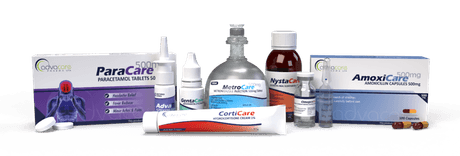What is the meaning of Corticosteroids?
Corticosteroids are a class of medications that are synthetic versions of the hormones produced by the adrenal gland. These hormones, including cortisol, are important for regulating inflammation, immune function, and metabolism. Consequently, corticosteroid drugs help reduce inflammation, swelling, and redness.
Corticosteroids are commonly used in the treatment of a wide range of conditions, including allergic reactions, autoimmune diseases, respiratory diseases, and skin disorders. However, these treatments can also have significant side effects, particularly when used for extended periods of time or at high doses. Corticosteroids' side effects can include weight gain, fluid retention, osteoporosis, increased risk of infection, and changes in mood or behavior.
Corticosteroid drugs come in a variety of dosage forms, some of the most common forms include tablets, steroid injections, nasal steroid sprays, and topical corticosteroid agents such as creams and ointments.


